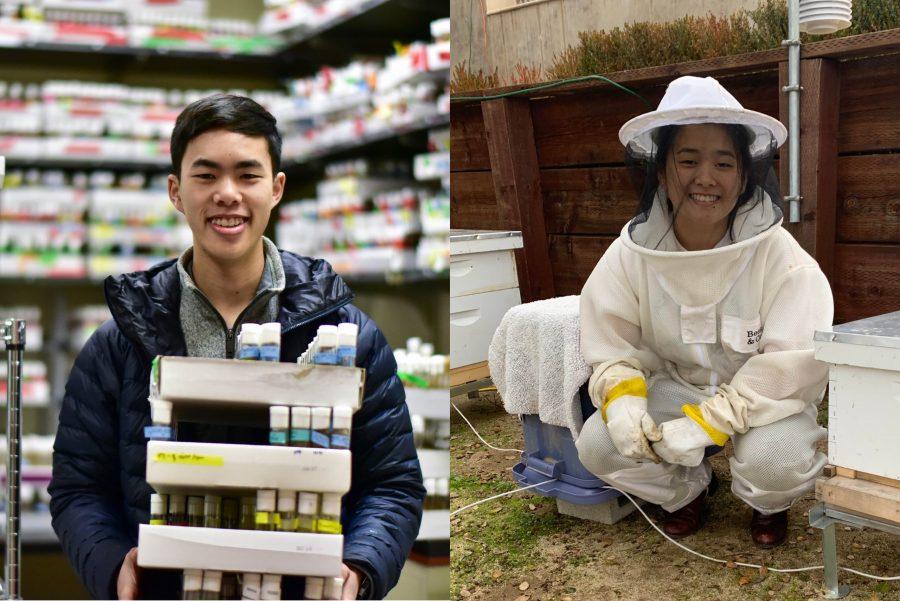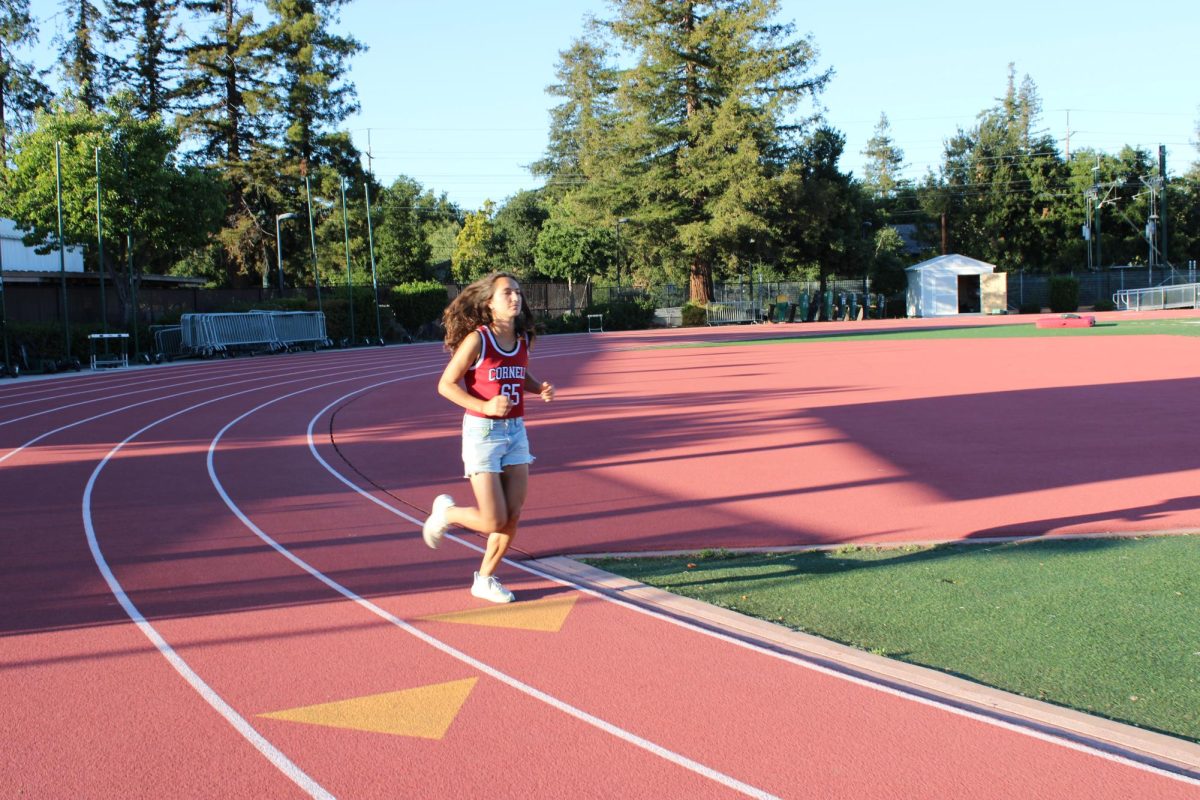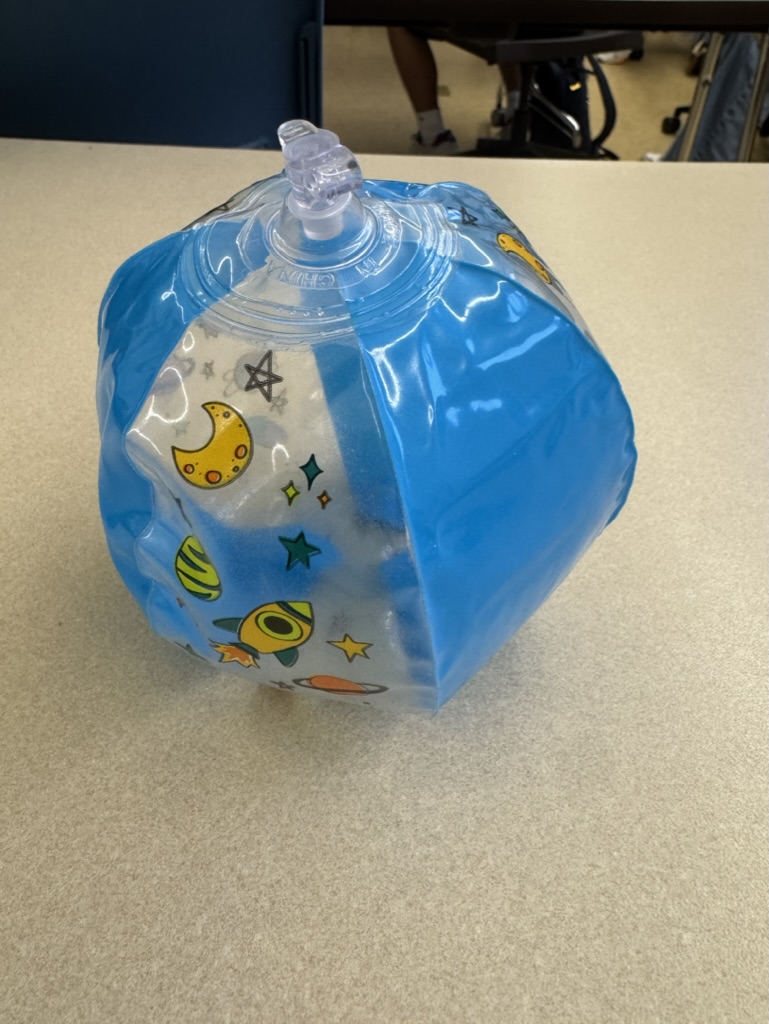Two seniors place as finalists in national science competition
February 1, 2023
Senior Vivian Wu’s phone buzzes as she steps out of the classroom at the end of seventh-period Marine Biology. The screen reveals an unknown number, and she hesitantly answers the call.
Moments later, she gasps; she is officially a finalist in the Regeneron Science Talent Search.
“My friend, who saw me on the phone call, later told me I was visibly shaking,” Wu said. “I didn’t realize that, but I was just really overwhelmed and excited, just grateful to be named a finalist and have the honor.”
Wu and senior Ryan Lee are among 40 finalists selected out of 1,949 entrants, with each finalist awarded at least $25,000.
The Regeneron Science Talent Search is the nation’s oldest and most prestigious science and math competition for high school seniors, according to the Society for Science, which hosts the competition with Regeneron Pharmaceuticals. The annual competition recognizes exceptional scientific research projects done by high school seniors.
In March, the 40 finalists will attend a national convention in Washington, D.C., where they will present their projects to judges and compete for the top 10 awards, which range from $40,000 to $250,000.
[divider] Vivian Wu: Queen of the Bees [/divider]
Wu was recognized for her research that contributes new insights into how formic acid affects honeybees’ foraging behavior, or bees’ ability to gather food. Beekeepers use formic acid to kill varroa mites, parasites that transmit deformed wing virus to honeybees and can collapse a hive within one to three years.
Wu said her research concluded that using formic acid during nectar flow — the time when nectar sources are in bloom and bees make most of their honey — could ultimately harm bees.
“I found that formic acid treatment suppressed the foraging performance of honeybee workers,” Wu said. “The results suggest that formic acid treatment during nectar flow could negatively affect honey production and potentially also the long-term health of honeybee colonies.”
To track bees’ foraging behavior, Wu said she documented their flight activities, which she did by attaching small location-tracking devices called Radio Frequency Identification tags onto individual bees.
“I used radio frequency identification technology for that, basically attaching these mini RFID tags to the bees,” Wu said. “And then with the data logger, I accumulated huge amounts of data on the flight activities that I then used algorithm analysis (on).”
Wu said she became inspired to conduct her research as a result of her beekeeping hobby, although she did not initially expect the hobby to evolve into a research project.
“I got a hive for fun and gradually got more hives, and then this research started,” Wu said. “I made an observation one day that catalyzed my research, but I didn’t get into it with the intention of conducting research necessarily.”
Wu said she entered the Regeneron contest in hopes of both publicizing her findings and meeting other students who are passionate about their research.
“Part of it was to get my research out there and have the opportunity to share it with other people,” Wu said. “The other huge part is the connections and meeting other people. I’ve already had the chance to talk with a lot of other scholars and finalists, just connecting with them and hearing about their research. Everybody is incredibly smart, passionate and motivated, so being able to connect with them is really amazing.”
Wu said she would seek guidance from her mentor, a professional beekeeper, when she felt like she was making slower progress in her research.
“My mentor was a big source of help,” Wu said. “I’d communicate with him and (tell) him, ‘Hey, I’m a bit stuck on this’ or ‘I’m not sure how to proceed,’ and he’d guide me and help me get into more of a scientific-thinking mindset.”
Wu said even though research may seem daunting at first, she encourages students to consider the benefits and fulfillment it can bring.
“Overall, I encourage everybody who’s interested to pursue research because there’s so many skills that you get from it, like persistence and hard work, (in addition to) creativity and communication skills,” Wu said. “I think it’s really rewarding at the end when you see everything come together.”
[divider] Ryan Lee: Lord of the Flies [/divider]
Lee’s research focuses on how mitochondria, which fuel cellular processes, impact the brain.
“I’m interested in structural plasticity, which is the ability of your brain to change in order to reflect new experiences, and how mitochondria power the ability of your brain to move and change its shape and size,” Lee said. “This is an important feature of the brain that underlies important abilities such as learning and memory formation.”
To conduct his experiments, Lee said he used fruit flies as a model organism because of their accessibility and genetic similarities to humans. He also said he genetically modified fruit flies to have certain mutations that make them light up, which enabled him to visualize his data.
“(Fruit flies) are really easy to use, and there’s a lot of genetic power,” Lee said. “You inject a fluorescent dye into the cell, and then it glows, which is kind of crazy.”
He said he discovered that damaged mitochondria can hinder brain functionality and accelerate aging in fruit flies.
“What I found is that if (fruit flies’) mitochondria aren’t healthy, then (their) brains lose plasticity,” Lee said. “My research identifies a potential underlying cause for neurodegenerative diseases such as Alzheimer’s and Parkinson’s.”
Lee described the research process as two mini experiments within one project. He said removing a protein important for mitochondrial health called Dynamin-related protein 1 affected the fruit flies in two distinct ways.
“Removing this (Drp1) protein has two different effects,” Lee said. “(Fruit flies’) neurons don’t move as much, and their neurons lose their synapses.”
Lee said he gradually became interested in the study of neuroscience because it is relatively unexplored, and there are many questions left to be answered.
“Neuroscience, or the brain at least, is often called the last frontier of science, so it’s the last thing we don’t fully understand,” Lee said. “It’s still a little bit of a black box, so that’s something that’s always appealed to me.”
Lee said that he became motivated to submit to Regeneron after a senior who graduated from Paly last year, Neil Rathi, placed as a finalist in the competition. He said he hopes his achievement can inspire younger students interested in research to also consider the competition.
“It’s partly why I’m happy to do these things, because hopefully someone else who does research or is interested in research will submit a project too,” Lee said. “The competition builds a structure in many ways. Otherwise, sometimes it’s hard to have direction.”
As a result of his experience researching the brain, Lee said he hopes to continue studying neuroscience and is considering a potential career path as a physician-scientist.
“Being a physician-scientist would be an interesting way to tie together doing research and trying to understand the unknown and (understand) how we can use this to better help patients in the present,” Lee said. “Because a lot of research, including mine, is very future focused, this will probably have implications somewhere down the road.”
Lee said he thinks research should prioritize the higher goal of helping human lives, which drives his own research.
“Ultimately, in my research and in research in general, the end goal is to have new medicines and to help people,” Lee said. “The question every research project should (answer) is, ‘Why does this matter?’ and that could ultimately be something about improving human lives.”








